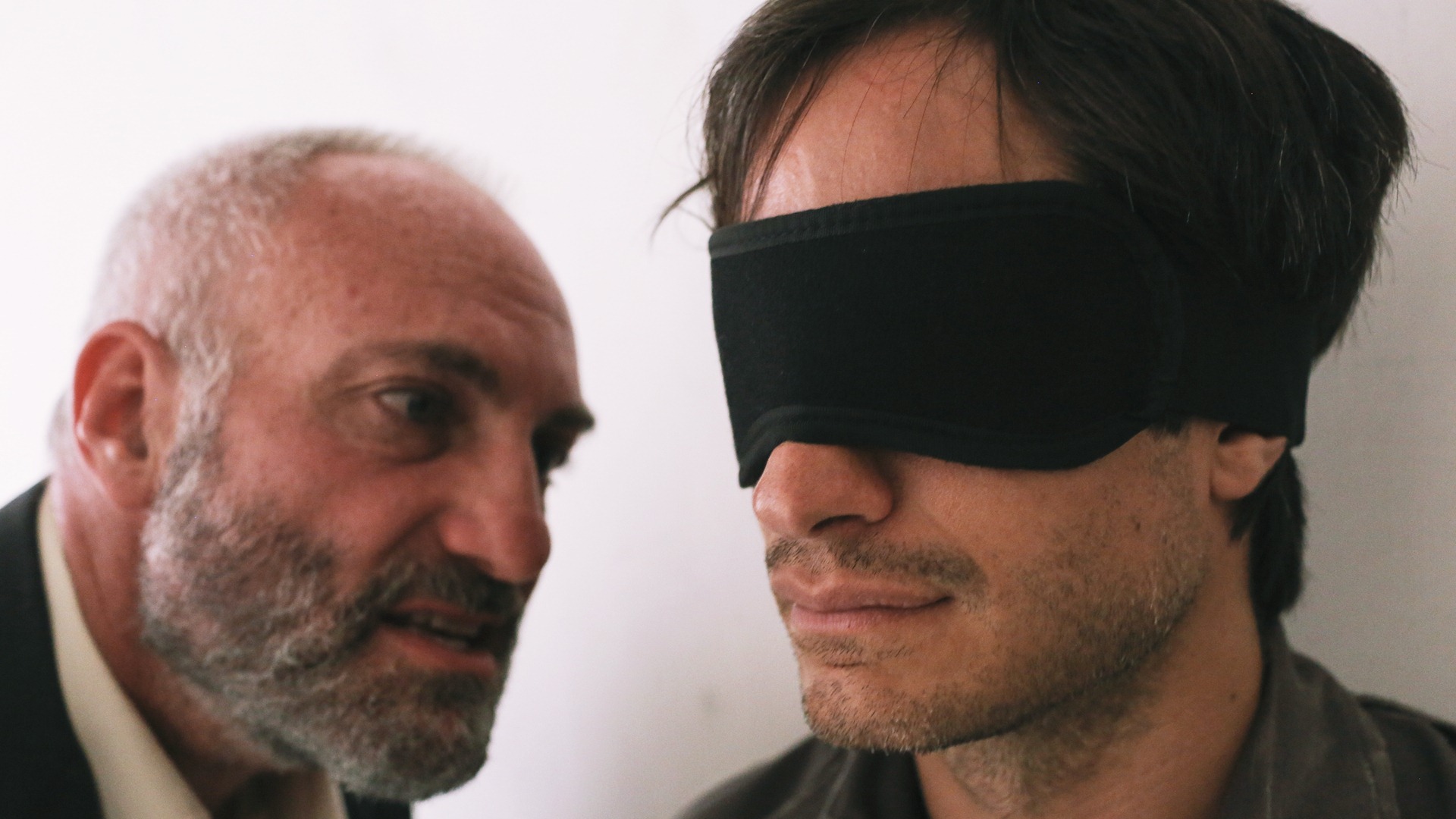Jon Stewart’s crossover from host of a hit satirical news show to feature film writer/director was slightly surprising on the face of it. But once you get into Rosewater, you see why this true story was so personal to him. In 2009, Daily Show correspondent Jason Jones, donning a silly undercover spy persona, conducted a mock interview in Tehran with Newsweek journalist Maziar Bahari for a segment about the country’s elections, which Iranian-born Bahari had returned home to cover. A short time later that interview was actually used against him when he was arrested and charged with spying for the CIA. “Why this man claim to be a spy if he is not a spy?” his interrogator asks in the film. “Why would a spy have a television show?” Bahari answers incredulously. And this was the rabbit hole he fell down — an absurdist nightmare with no room for reality or truth.
Bahari comes from a family with a history of rabble rousing. His father was imprisoned by the Shah, and his sister died after years in jail for speaking out against the powers that be. But he became a journalist and left the country, and he thought his press credentials would shield him from government reach. He was wrong. After shooting and airing footage of the Iranian forces’ brutal response to opposition demonstrations, he was roused from his bed by intelligence officers who whisked him away to prison and began their campaign to force a false confession from him. Bahari was held for 118 days before international pressure forced the Iranians to free him, but not before he was put through all kinds of (mostly) psychological torture. He was placed in solitary confinement, forced to wear a blindfold much of the time, given meager food, and led to believe that no one was working on his release, not his Mom and not his pregnant wife. Rosewater is an indictment of the absurd lengths that the interrogator went to to get Bahari to publicly state that he was one of the outside agitators responsible for the rioting that followed the election.
If it were just that simple and depressing, Rosewater would be kind of boring though. But Stewart has written an engaging script by turns scary, funny, and entirely absurd. It is “based on a true story,” but you are left to wonder where the truth ends and the writer’s creative imagination steps in. Gael Garcia Bernal does a great job conveying Bahari’s disbelief at what is happening to him and his growing despair as the days pass. His conjuring of the ghosts of his dead father and sister gives him the opportunity to talk about what is going on and to work out his strategy to survive. And Kim Bodnia’s character, Rosewater the interrogator, is the perfect counterpart to Bahari’s rational journalist, playing sickening mind games and believing that he is more subtle than he will ever be. The scenes where Bahari begins feeding him titillating stories of massage parlors in New Jersey are a welcome comedic respite from the relentless insane questioning. The film is also beautifully shot by Bobby Bukowski with early scenes placing you right in the chaotic streets of Tehran and contrasting that with the isolated minimalism of the prison. Rosewater is surprisingly effective at putting the audience inside Bahari’s ordeal without going to manipulative extremes. I’d recommend it to most adult audiences. The violence is kept to a minimum, but the message comes through loud and clear. Be careful. There are some very crazy people out there and reality doesn’t matter to them at all.


I liked Rosewater, but not to the same degree as Arty Chick. While I can appreciate why Jon Stewart chose to write and direct the movie (basically to avoid it getting mired in ‘development hell’) it lacks the type of dramatic and narrative arc that more seasoned writers and directors are more apt to achieve. Rosewater is good – but could have been better. It fails to achieve the palpable tension that gave the also ‘based on a true story’ Argo its broad appeal. Fascinating story though – and a must see for fans of Gael Garcia Bernal!
I don’t think Argo is a fair comparison. This is a smaller, more intimate film.